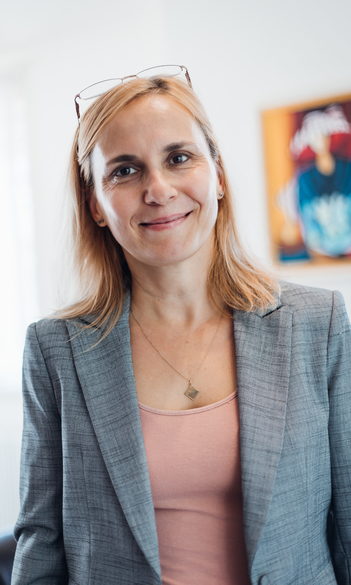Interview with Bori Nagy

How did you become a coach?
I have been supportting mainly international students for seven years in the International Office, at ELTE PPK. There is not really such an area of international affairs in which I have not been involved for a longer or shorter period of time. My tasks spontaneously started to develop some kind of coaching approach within me, and I wanted to do it much more consciously, to take it to a professional level. I completed a postgraduate specialist training course in coaching at ELTE and joined the Help Programme of BTK in May 2020.
What does a coach do actually?
The coach’s most important activity is to listen, get tuned, and connect. They ask a lot, sometimes surprising things. In the case of specific topics and goals, they can help to clarify undecisive points. After that they can support you to figure out and plan how to proceed, what to do next. Actually, they are really like a sport coach - running alongside the track with you, helping, tipping over hard points; gives you the tools and gives you tasks: when you’re really ready to grow in what you want.
Who do you recommend coaching to and what can be achieved with it?
I recommend it to those who are committed to change. Those who have already realized that they want to know more about themselves, feel the need to do something and have already reached the point that they are really ready to take steps as well. With coaching, it is possible to clarify what we really want, we can develop our problem-solving and decision-making skills. We can practice goal setting, planning, implementation… and I could add a lot more to this list. It is very diverse what can be developed and achieved with the tools of coaching.
When do we need something else but not coaching?
Coaching is clearly applicable and effective when we are mentally okay and ready. If you have deep-rooted blocks from the past that are related to the topic you want to improve on, you might rather need a psychologist, psychotherapy first. If that is solved, you can then move on with the tools of coaching. It is very important to clarify that the coach is not a therapist, they will not analyze the issues - coaching focuses on goals, solutions on a certain topic.
You also offer individual and group coaching - what is the difference between the two besides the number of participants?
In individual coaching, I obviously deal with one person at a time. We clarify the topics, we develop what is most important and we start working on it together. In group coaching, participants also bring their topics, but here they work not only with me, but with each other. The strength of the community multiplies our own strength, our faith, our motivation. These three things play a very important role in long-term growth and success. Listening to each other’s experiences with respect and providing mutual feedback without judgement give us the opportunity to experience the real breakthrough faster and deeper. In the community, we can experience the connection, its constructive and retaining power on deeper levels. In these groups, friendships and mutually supportive relationships evolves, and it is playing a particularly important role these days.
So far, in what cases have you been able to help, what topics have arisen?
For many of us, this period is stressful, the lack of social life wears down all of us - this is exponentially true for international students, who, in many cases are away from their families, sitting alone in the room and participating in education that way. It would be difficult to list all the topics. It came up many times how to bring a system to online existence, how to keep our energy on a good level, how to manage ourselves, our lives, whether university or personal, more effectively. When and how to say no, how to represent ourselves, our interests.
What feedbacks did you get?
The most important feedback is the great recognitions, uplifting moments during the occasions. In addition, most of the time the students stated that coaching helped them a lot in developing their communication skills, formulating clearer, more realistic goals and being able to constantly do for their ideas, to stick to what they planned.
If someone wants to participate in coaching, how can they contact you?
Conact me via e-mail: help_coaching@btk.elte.hu
Start-up trainings
You can read more about coaching HERE.

